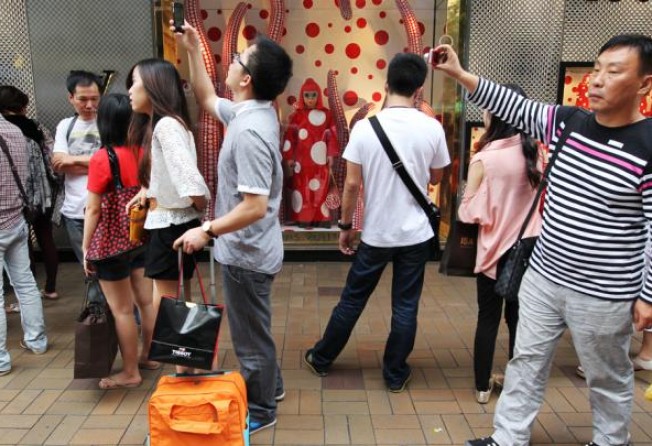The people must be encouraged to shop at home
More domestic consumption may help narrow the trade deficit and ease yuan's appreciation

Millions of noisy mainlanders headed home after the Lunar New Year break laden with suitcases that bulged with goods ranging from cans of milk powder to luxury leather bags, delivering bumper sales for retailers and hoteliers from Hong Kong to New York to Sydney. Not everyone was happy about the influx of the mainland tourists, though.
In Hong Kong, there are fears that the rapid rise in mainland arrivals has stretched the city's hotel and tourism facilities to breaking point, with one legislator already calling for a cap on the number of visitors from across the border.
But the visitors' sheer spending power is transforming the tourism industry worldwide. Not only do they spend big on luxury items but also on necessities such as shampoo and baby formula.
According to some estimates, Chinese tourists spent US$85 billion abroad last year. Most could more accurately be described as shoppers, as getting a taste of foreign culture often involves nothing more than taking pictures at a landmark before rushing off to a department store or factory outlet.
One anecdote tells of a young Chinese woman who gave birth in the United States so her child could gain American citizenship, then bought everything the child would need in the first five years - from clothing to toys to milk powder - before shipping them back home.
"Everything is much cheaper than at home" is a constant refrain from mainlanders on their overseas shopping sprees.
It is ironic that while China is the world's factory, mainlanders always have to pay more for products made in their own backyard. Over the past few years, ordinary mainlanders and state media have begun to question why this should be so - especially considering that the average mainlander earns far less than most other consumers overseas.
Unfortunately, the mainland authorities who know the answers to that vexing question have been sitting on their hands and doing nothing.
As the nation's new leaders, including Xi Jinping and Li Keqiang, have vowed to undertake bold economic reforms to rebalance its economy and boost domestic consumption, finding ways to persuade mainlanders to spend more at home should become a top priority.
First, the authorities must reform the tax regime and lower taxes on consumer goods. On imported luxury goods, for example, the government collects customs tariffs of between 6.5 per cent and 18 per cent; value-added tax of 17 per cent; and consumption tax ranging from 5 per cent to 45 per cent.
It is little wonder those products cost 30 to 70 per cent more on the mainland. Even Lenovo computers, China's indigenous brand, are cheaper overseas.
The powerful Ministry of Finance has put up stiff resistance to tax reductions on foreign luxury goods, arguing that doing so would hurt domestic manufacturers and hand more money to foreign companies. But critics respond that as mainlanders' appetite for foreign luxury items is insatiable, more imports would not only stimulate domestic consumption - and government revenue - but also help narrow the trade deficit and reduce pressure on appreciation of the yuan.
Secondly, the authorities must lower logistics costs. China may have one of the world's most extensive highway systems but it is probably the world's most expensive as it includes mostly toll roads, the cost for which is passed on to consumers.
To be sure, even with reduced taxes and lower logistics costs, many leading international brands are unwilling to lower their prices and sell at discounts as they do in other countries.
This is not only because they try to take advantage of the mainlanders' craze for foreign goods but also because a small number of them enjoy a bigger market share on the mainland than at home.
The authorities could further open up the market and introduce more competition by making it easier for other international brands to set up shop.